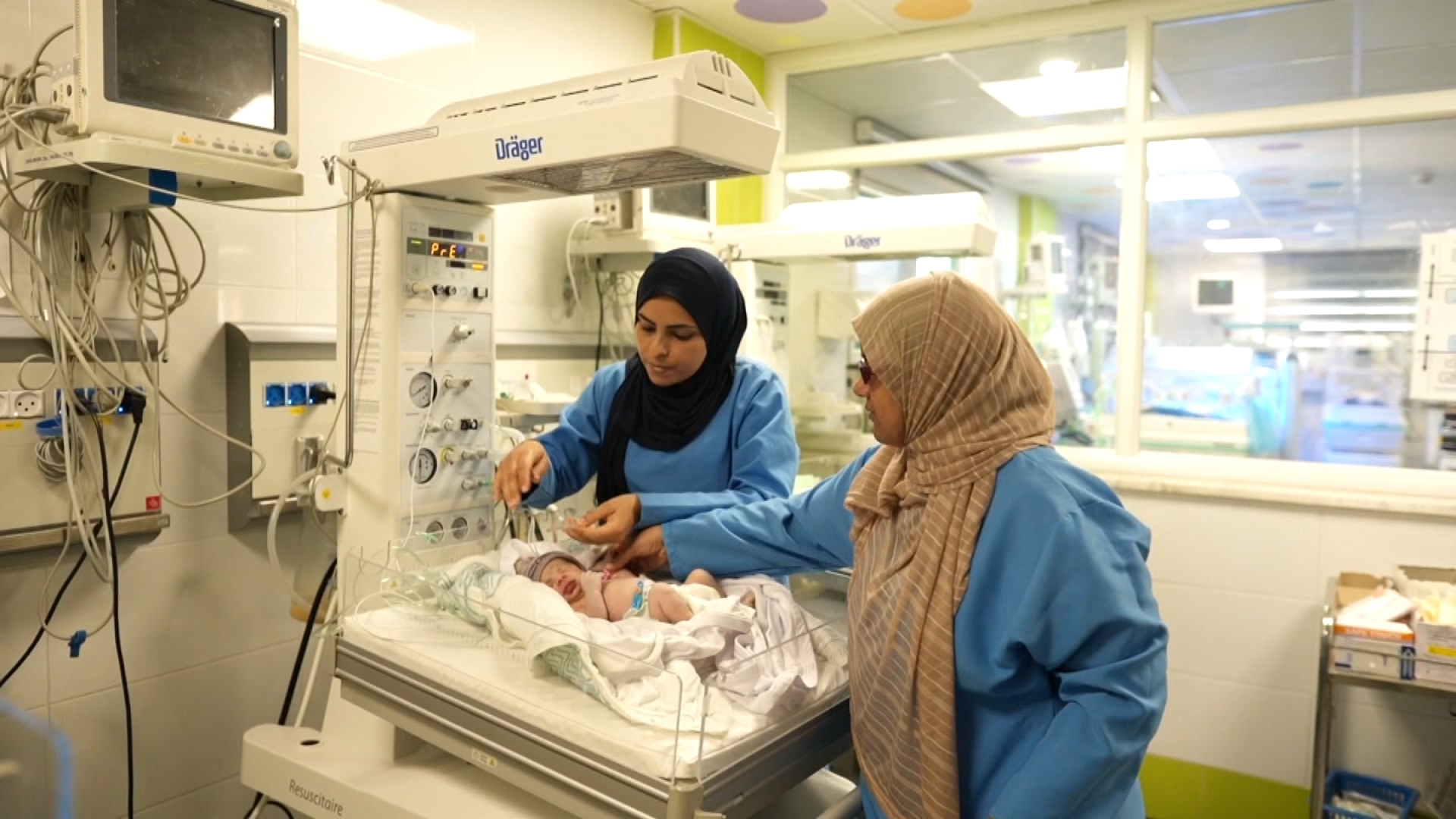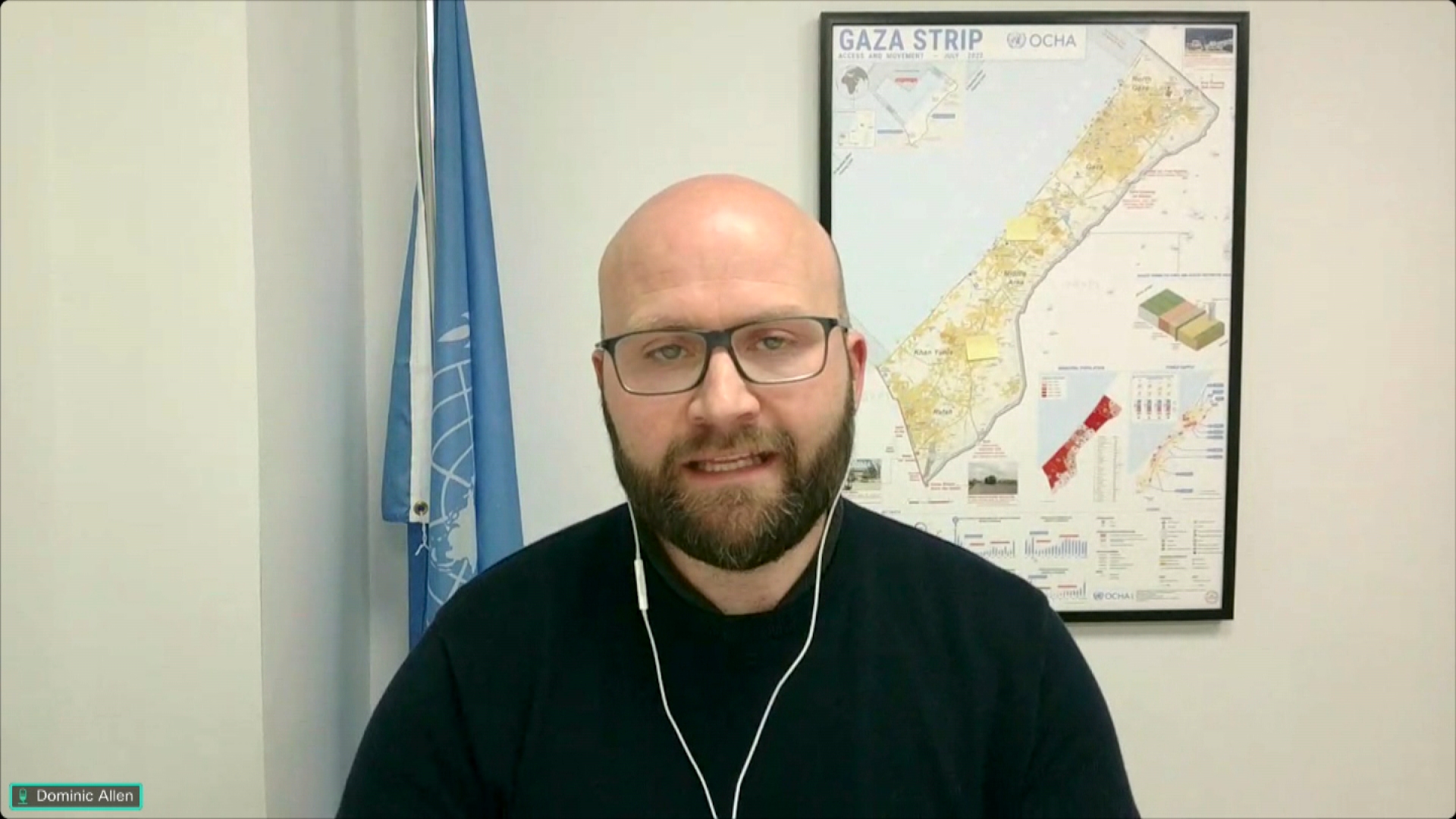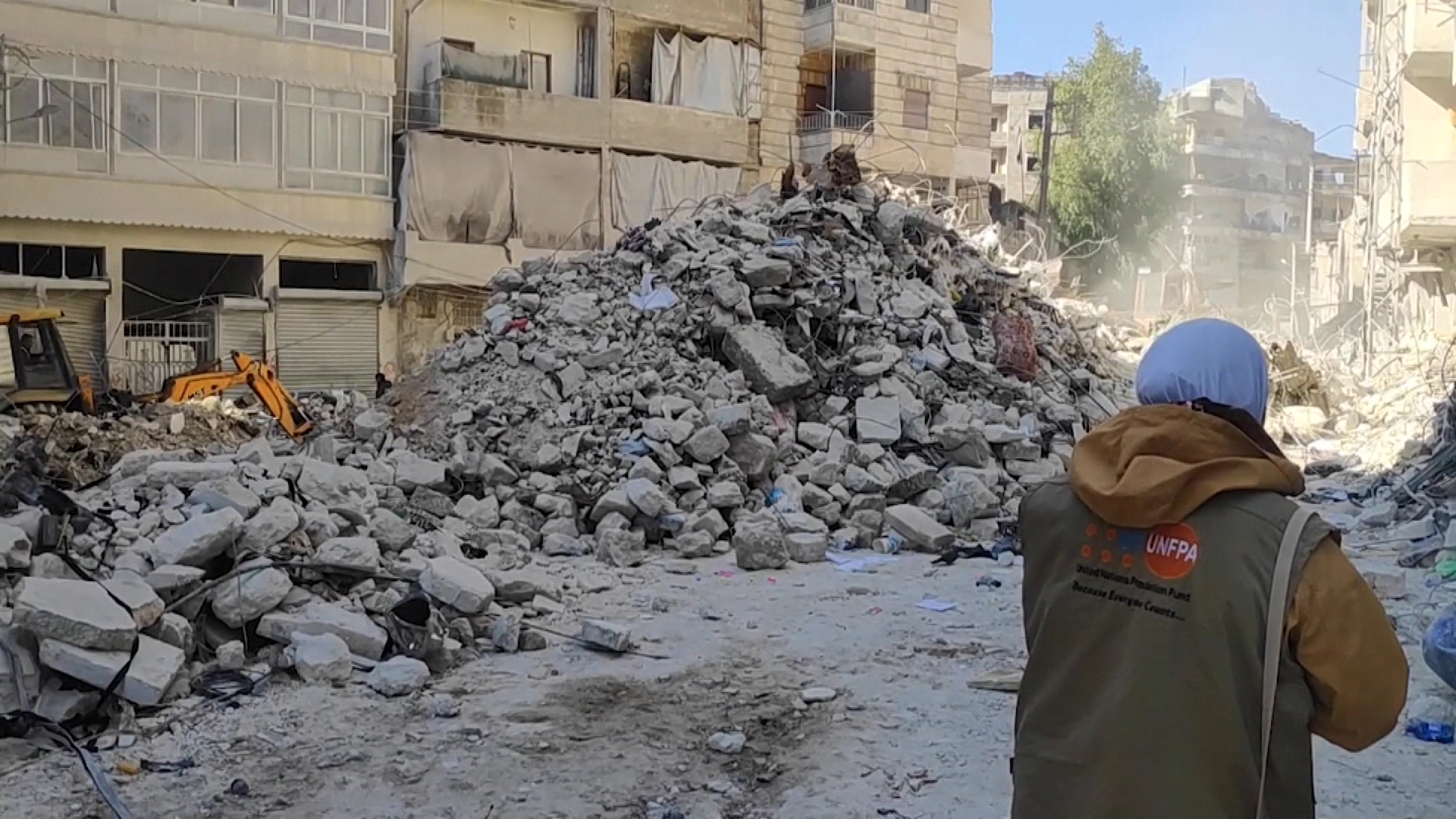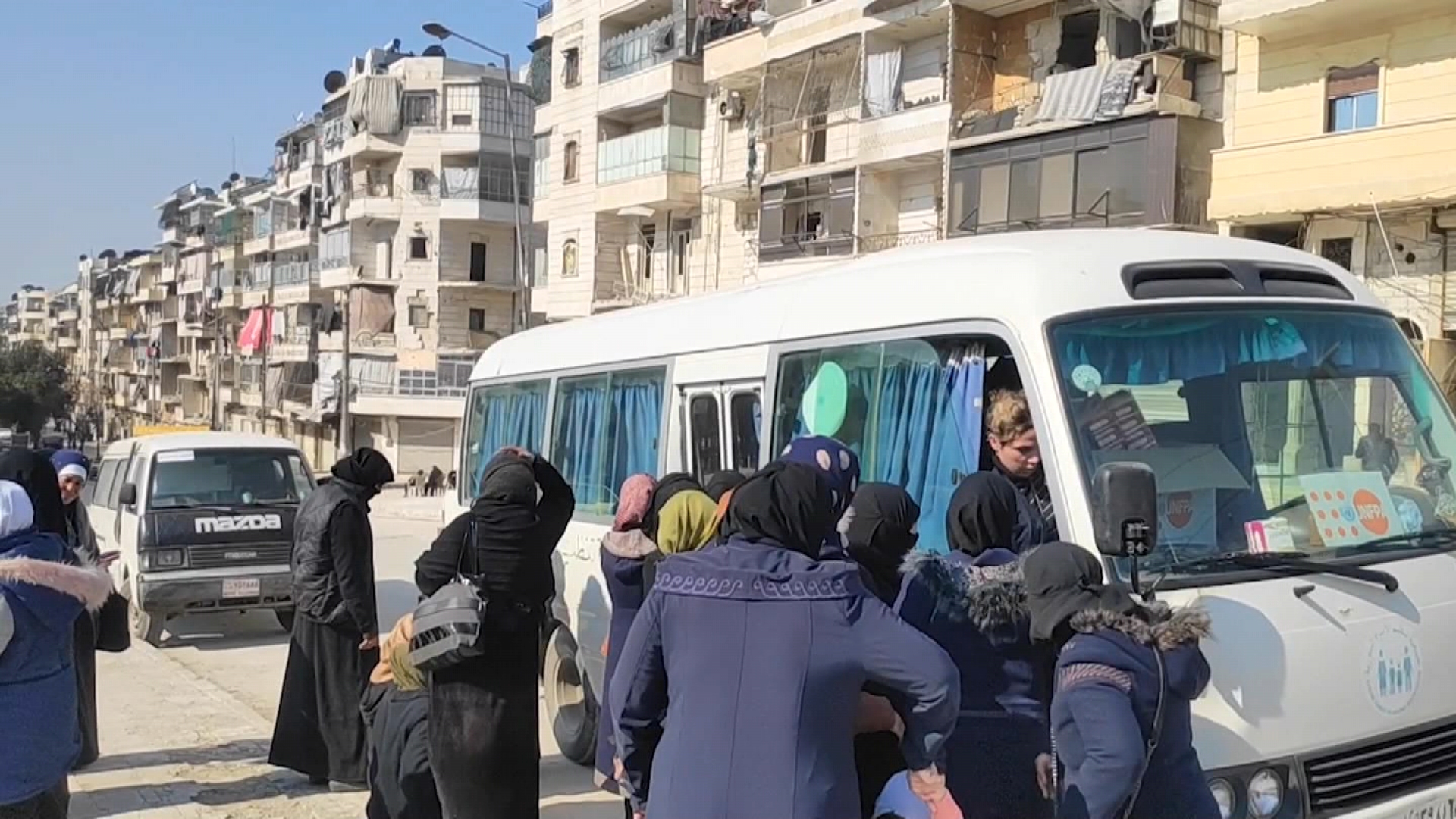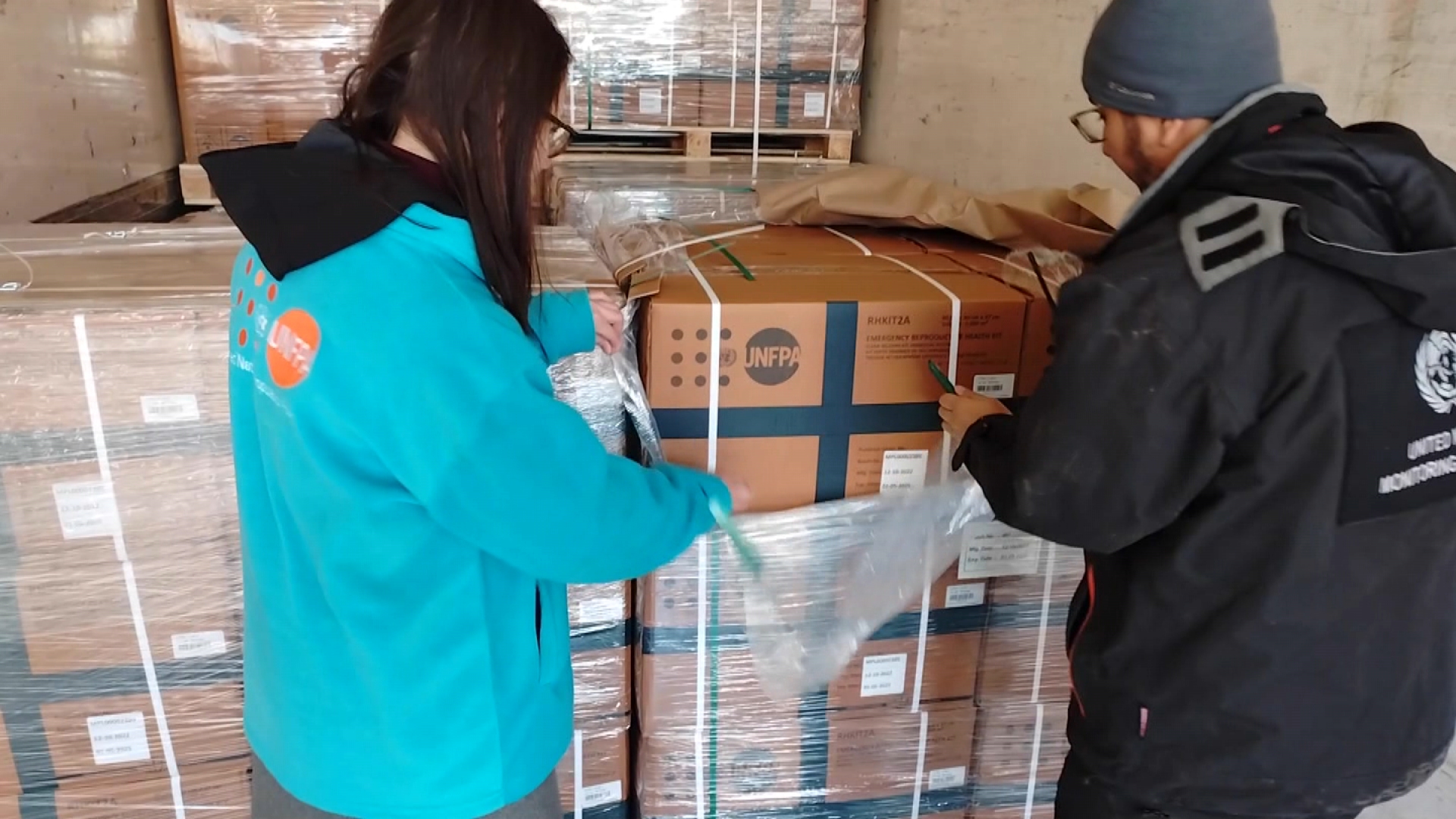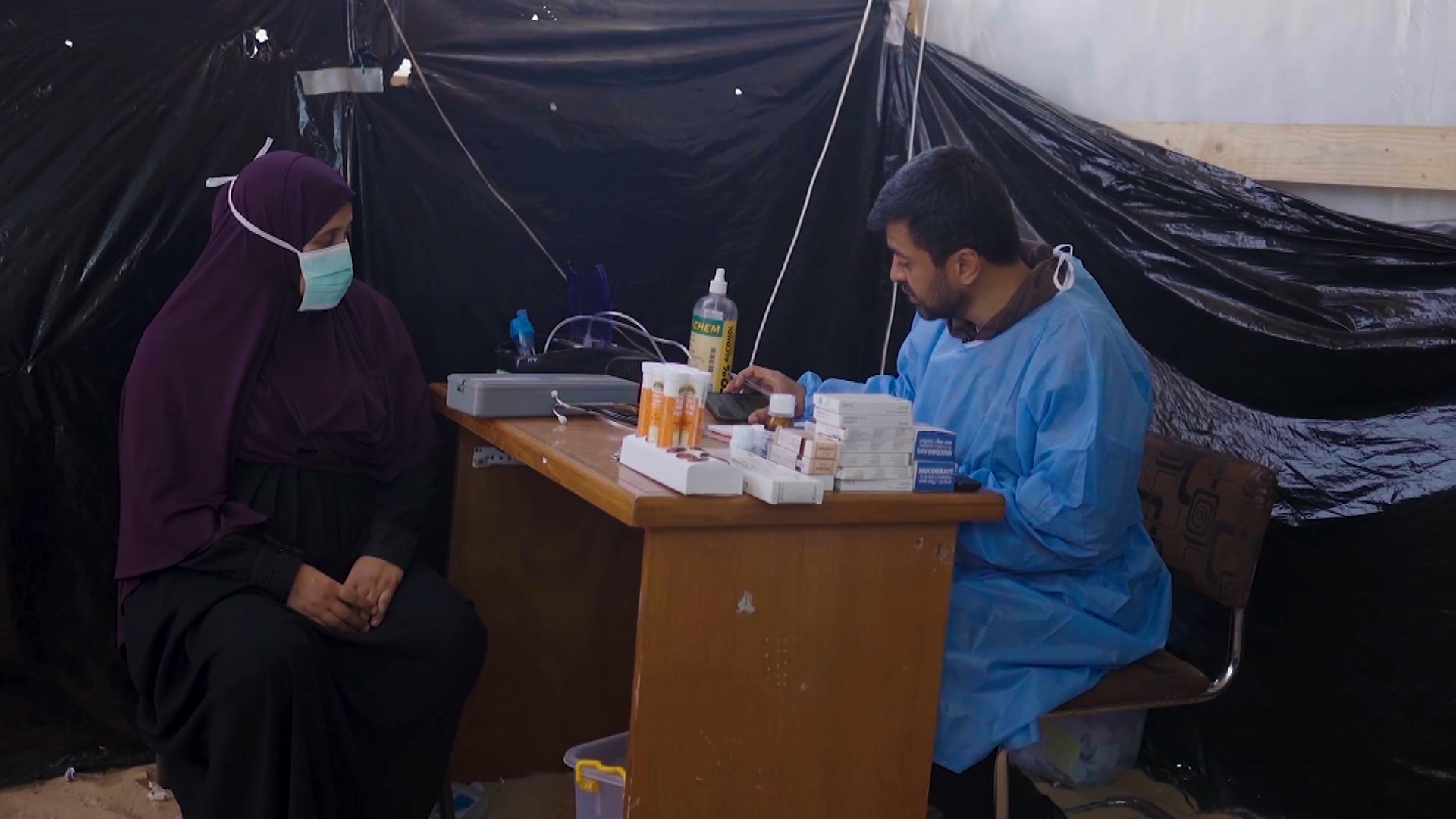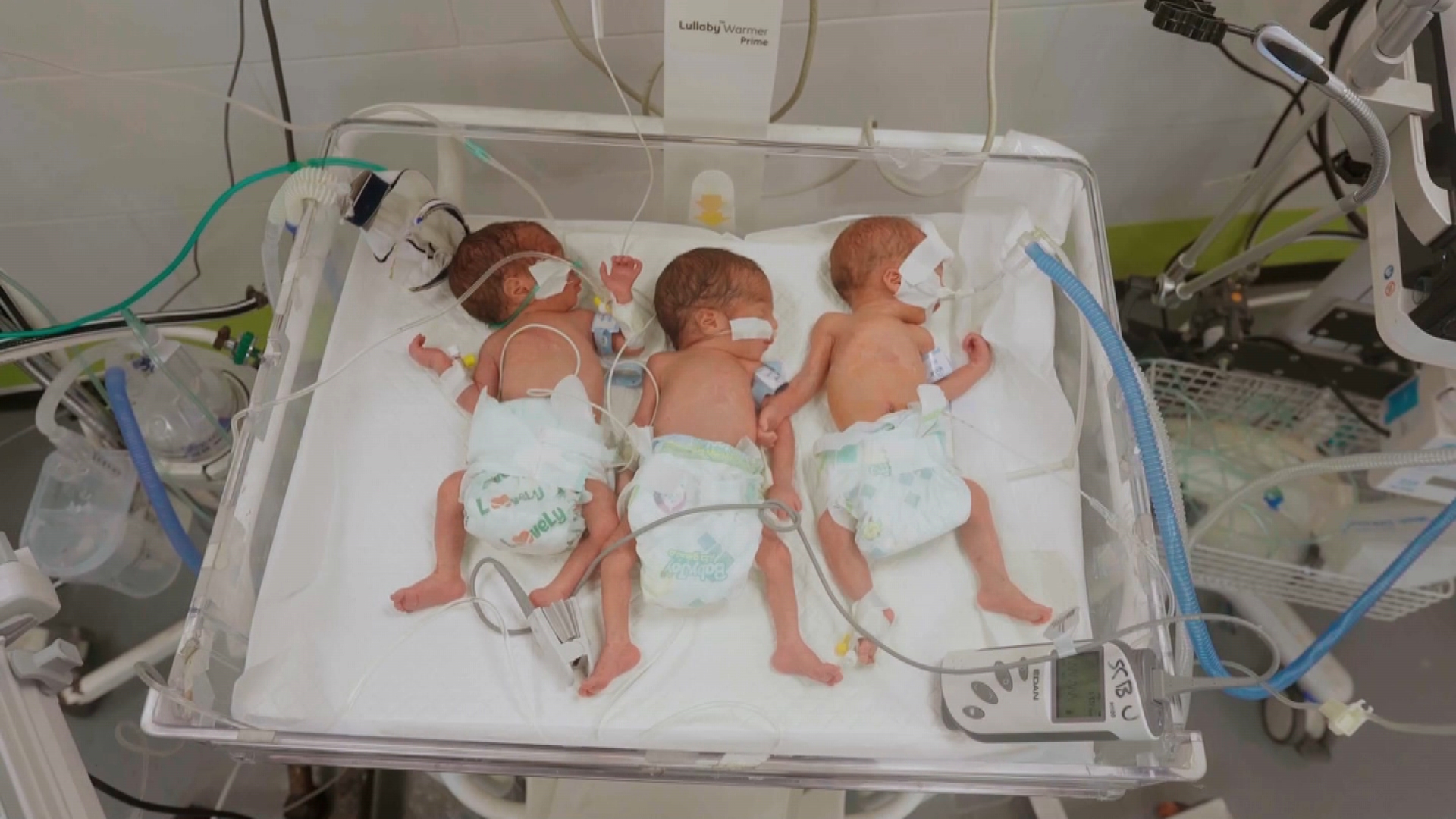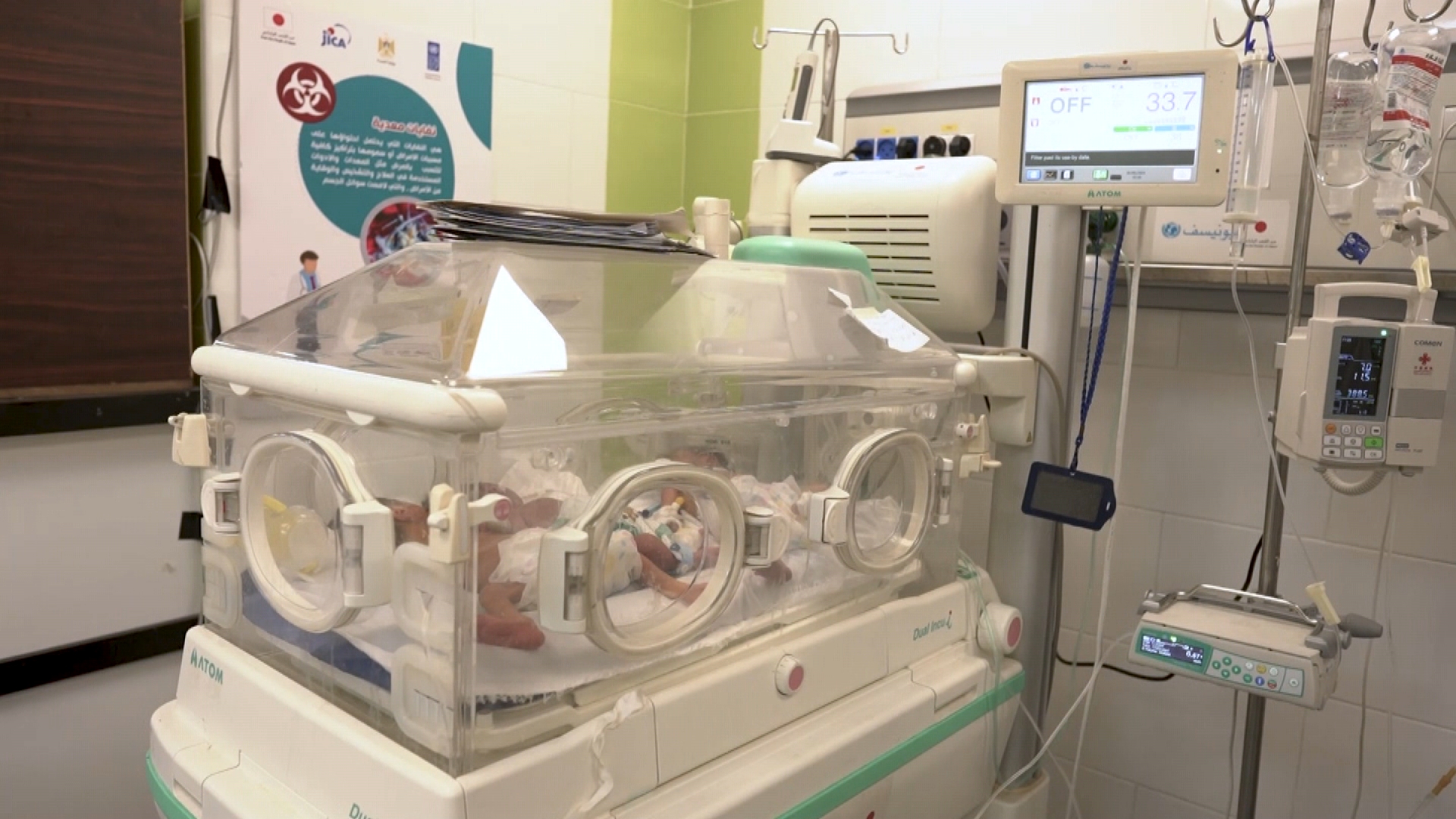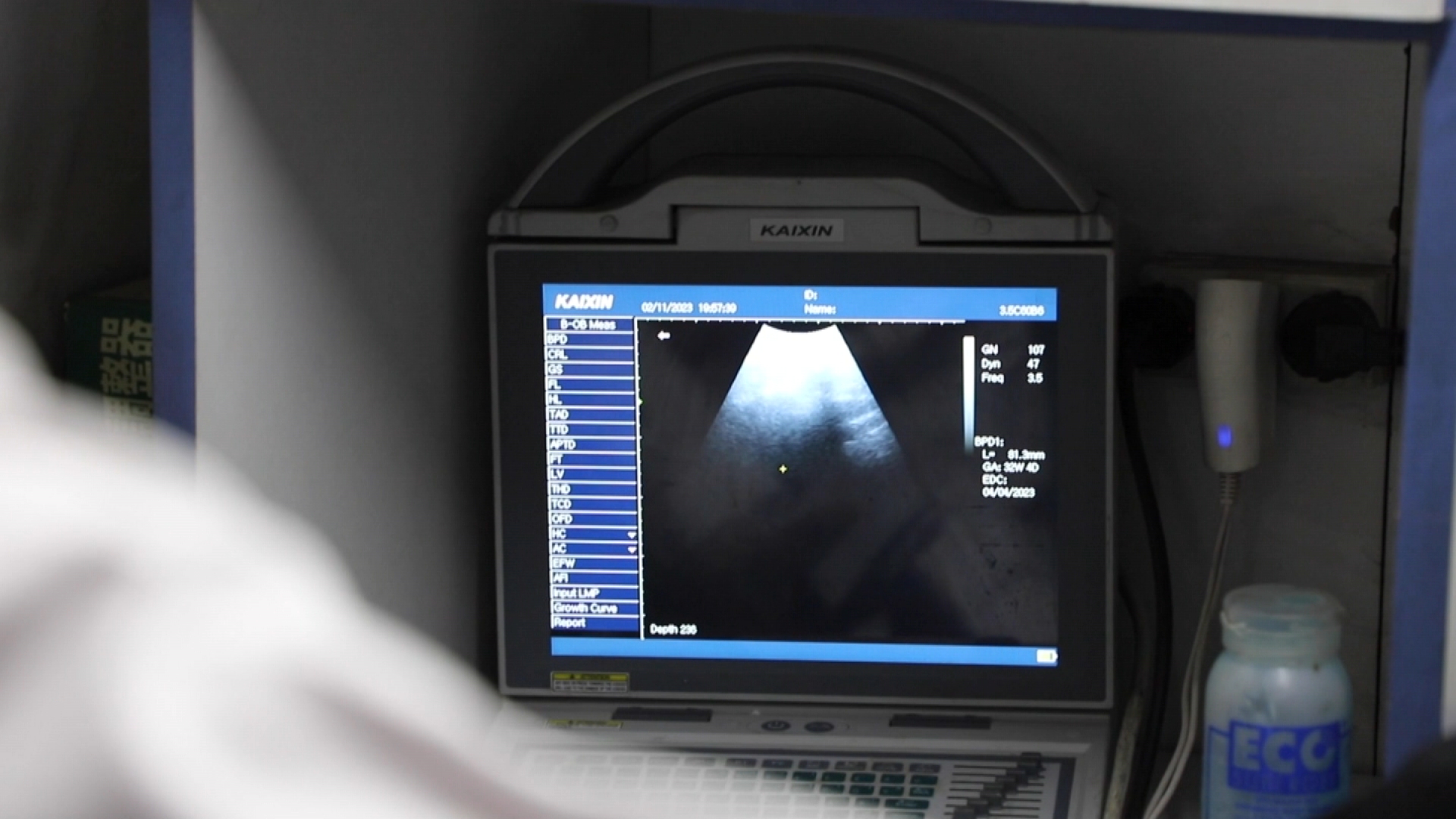UN / PALESTINE POPULATION FUND
STORY: UN / PALESTINE POPULATION FUND
TRT: 02:53
SOURCE: UNIFEED
RESTRICTIONS: NONE
LANGUAGE: ENGLISH / NATS
DATELINE: 15 MARCH 2024, NEW YORK CITY / FILE
FILE - NEW YORK CITY
1. Wide shot, exterior UN Headquarters
15 MARCH 2024, NEW YORK CITY
2. Wide shot, press room dais
3. Wide shot, journalists
4. SOUNDBITE (English) Dominic Allen, Representative for the State of Palestine, United Nations Population Fund (UNFPA):
“What we see in Gaza is that it's a nightmare, which is much more than a humanitarian crisis. It is a crisis of humanity. And the situation is beyond catastrophic. And whilst we see the violence of war on the ground, there is also a war for the narrative and for disinformation. And having left Gaza this week, I can assure you that it's worse than I can describe, or that the pictures can show or that you can imagine.”
5. Wide shot, press room dais
6. SOUNDBITE (English) Dominic Allen, Representative for the State of Palestine, United Nations Population Fund (UNFPA):
“What I saw as I drove through Gaza really broke my heart. Gaza is dust. And my greatest fear is what may come for Rafah. And while driving up through Gaza into Gaza City, I think what I took away from that was the look in the eyes of the people, which the emotion is truly indescribable. Everyone we passed, everyone we spoke to was gaunt, frail, emaciated, hungry. Everybody was doing this for food.”
7. Wide shot, press room dais
8. SOUNDBITE (English) Dominic Allen, Representative for the State of Palestine, United Nations Population Fund (UNFPA):
“What they are also seeing in terms of maternal care is a high increase, nearly double the amount of complicated cases of births coming in. That means that needs to have more health care. And they're seeing this coming from malnutrition, from hunger, from dehydration, and from the stress caused by great fear, which is, continues to be prevalent everywhere. Fear is just everywhere in Gaza, but especially for these pregnant women, because the doctors are reporting that they no longer see normal sized baby. No, they've not seen a normal sized baby. Don't see them. What they do see, though, tragically as more stillborn births, more stillborn babies, and more neonatal deaths.”
9. Wide shot, press room dais
10. SOUNDBITE (English) Dominic Allen, Representative for the State of Palestine, United Nations Population Fund (UNFPA):
“We had two types of reproductive health kits, rejected. And I saw this myself in, in the warehouse that we have in Rafah. One of the reproductive health kits is a midwifery kit. So, it's literally a UNFPA bag. It has all the basics for what's called a clean delivery kit. So, the basics for a midwife to be able to support an emergency safe birth; a plastic sheet, so, umbilical tie, the real basics. The boxes were cut open with a box cutter and the flashlights and LED rechargeable batteries to be able to support midwives to deliver births in the dark were taken out and then the boxes moved forward.”
11. Wide shot, end of presser
Following his visit to Rafah, the United Nations Population Fund (UNFPA) Representative for the State of Palestine Dominic Allen today (15 Mar) said doctors in Gaza are seeing “nearly double the amount of complicated cases of births coming in,” as well as “more stillborn babies, and more neonatal deaths.”
Briefing journalists in New York via Video Teleconference from Jerusalem, Allen said, “what we see in Gaza is that it's a nightmare, which is much more than a humanitarian crisis. It is a crisis of humanity.”
He said, “the situation is beyond catastrophic. And whilst we see the violence of war on the ground, there is also a war for the narrative and for disinformation. And having left Gaza this week, I can assure you that it's worse than I can describe, or that the pictures can show or that you can imagine.”
The UNFPA representative said “what I saw as I drove through Gaza really broke my heart. Gaza is dust.”
He said, “what I took away from that was the look in the eyes of the people, which the emotion is truly indescribable. Everyone we passed, everyone we spoke to was gaunt, frail, emaciated, hungry.”
Allen explained that the causes for the increase of complicated births were from “malnutrition, from hunger, from dehydration, and from the stress caused by great fear, which is, continues to be prevalent everywhere.”
Fear, he said, “is just everywhere in Gaza, but especially for these pregnant women.”
The health official said “doctors are reporting that they no longer see normal sized baby. No, they've not seen a normal sized baby. Don't see them.”
Asked the types of items that are not being allowed into Gaza, he described the most recent example saying, “we had two types of reproductive health kits, rejected. And I saw this myself in, in the warehouse that we have in Rafah. One of the reproductive health kits is a midwifery kit. So, it's literally a UNFPA bag. It has all the basics for what's called a clean delivery kit. So, the basics for a midwife to be able to support an emergency safe birth; a plastic sheet, so, umbilical tie, the real basics. The boxes were cut open with a box cutter and the flashlights and LED rechargeable batteries to be able to support midwives to deliver births in the dark were taken out and then the boxes moved forward.”
According to UNFPA, there has been a steep rise in malnutrition among the more than 155,000 pregnant and breastfeeding women in Gaza. The estimated 5,500 pregnant women who will give birth in the coming month face unimaginable challenges in accessing adequate medical care – most no longer have the health-care facilities they need to deliver their babies safely.
More than 690,000 menstruating women and adolescent girls in Gaza currently have no privacy and limited access to menstrual hygiene supplies. The lack of water makes keeping clean nearly impossible and raises risks of infection.
In the West Bank, around 73,000 women are currently pregnant, with more than 8,120 expected to give birth in the next month as violence threatens to spill over and displacement reaches record highs.
Despite the dangers, UNFPA and partners have delivered life-saving medicines and equipment that have supported more than half of the births – 21,000 – in Gaza since the war began on 7 October. Essential hygiene supplies, including soap and sanitary pads, are being delivered to women and girls, but these meet only a fraction of the needs.
